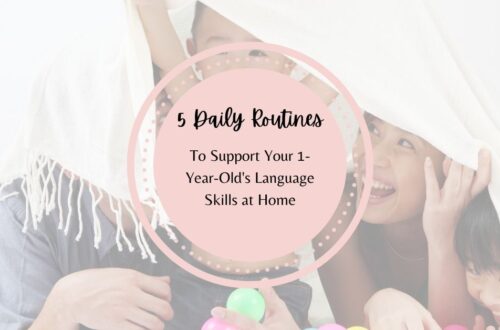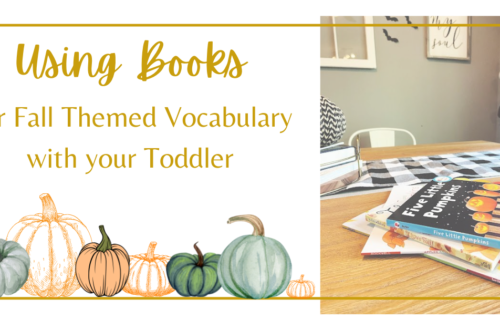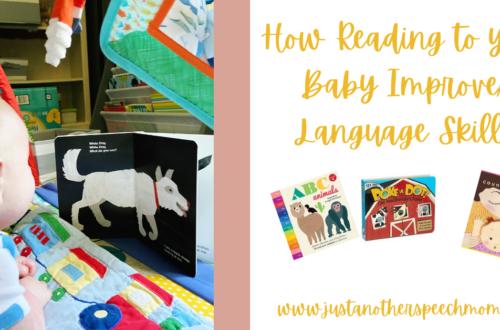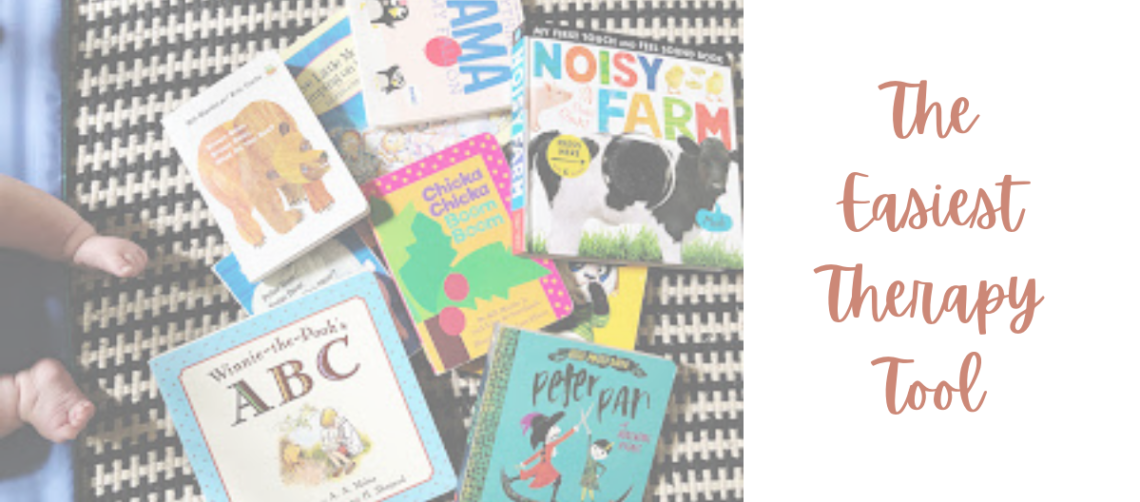
The Easiest Therapy Tool to Work on Speech and Language at Home
One of the easiest, no-prep, most versatile therapy tool I guarantee you have multiples of in your house right this second? BOOKS!
I’m a big fan of using books in therapy and reading with my own little ones. They make regular appearances in most of my therapy sessions, no matter the diagnosis. The great thing is, you really don’t need a ton of books to target a variety of language goals (although if you have kids, let’s be real you probably have a ton of books).
Shared reading, or engaging in an interactive experience while reading a book with your child, is a great way to encourage language growth and is something we should start from a young age. This could look like reading to your little one, describing pictures, following their lead as they point to pictures, etc. For more on when to start this, check out my post 3 Ways Reading to your Baby will Encourage Language Skills.
How many skills can you target with one book?
There are a few things we know that reading with your child can help improve.
In a meta-analysis of 38 studies, authors found that typically developing children 33 months – 12 years learned almost half of the words they were exposed to during a shared reading experience
(Flack et. al., 2017).
Proof that shared book reading works! So we know that shared reading with our little ones can help promote language expansion and build vocabulary. What are other specific skills that can be targeted with books?
With one book, you can target an insane amount of both speech and language goals, which is why it’s one of my favorite activities to incorporate into therapy sessions. For a good reminder of the many ways you can work on your child’s speech/language goals at home during shared reading, check out my Shared Reading Bookmark freebie by signing up for access to my freebie library.
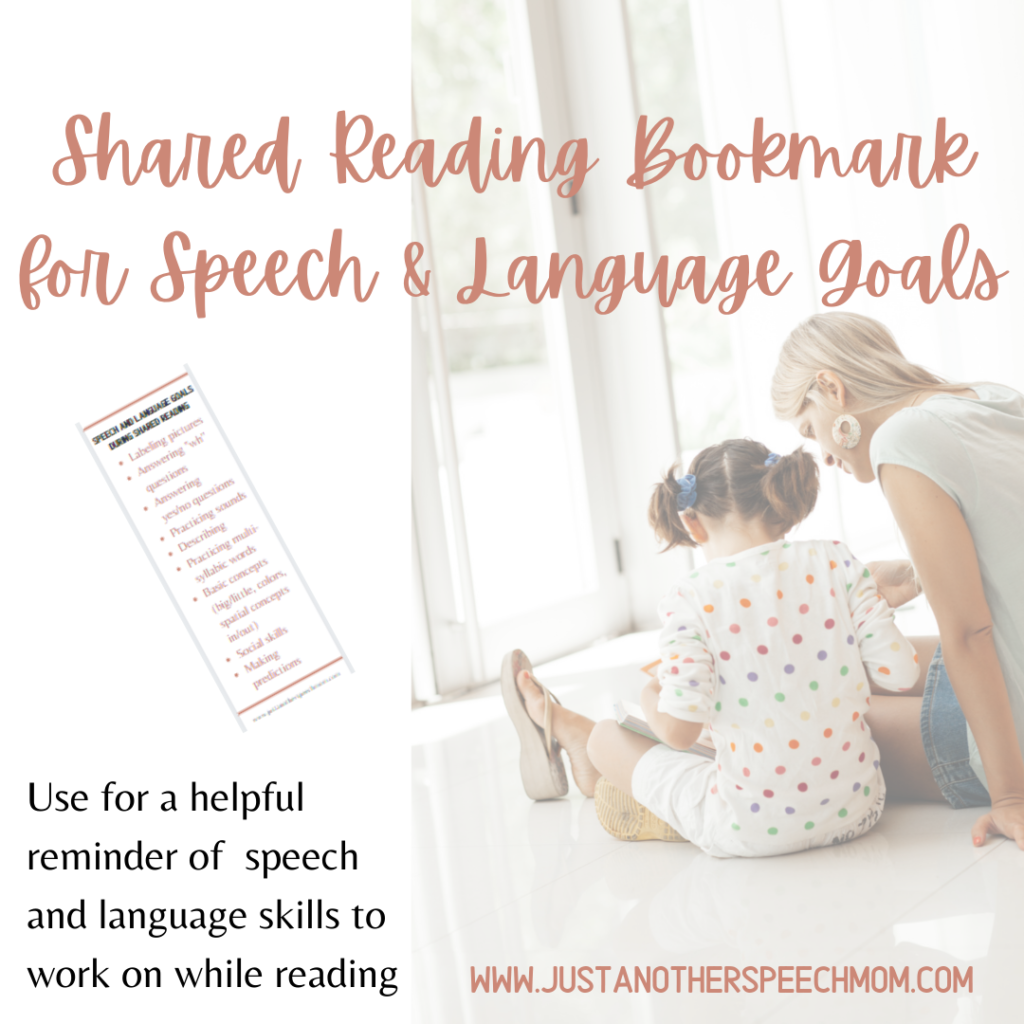
Want some examples?
Here are some of my most used books in therapy and at home, and skills that I target with each of them:
Pete the Cat and the Missing Cupcakes: (I love Pete the Cat but this is one of my favorites!) Articulation, basic concepts (e.g., counting), answering “wh” questions (what, who, where), answering yes/no questions, making predictions, inferencing, story retell.
Brown Bear: Basic concepts (colors, animal sounds), “wh” questions, labeling
Little Blue Truck: social skills, making predictions, labeling, “wh” questions, yes/no questions, articulation, identifying
The Princess and the Dragon: I use this one more for older or higher level kids. Great for making predictions and inferencing, story retell, and social skills.
Goldilocks and the Three Dinosaurs: Another book I enjoy using with older kids. This one is a funny spin off of Goldilocks and the Three Bears, and is another great book for making predictions and inferencing.
Suggestions for how to use books as a therapy tool to improve language skills
Books are such an easy and natural way to incorporate working on speech and language goals at home. My suggestion would be to pick a consistent time of day for reading with your child, then target whatever goals your child is working on while reading them a story. This is kind of a sneaky way to slip some practice in without it feeling like a lot of work for either of you!
Another thing I do to make targeting goals with books easier is to look through a book ahead of time, then write down goals that could be easily targeted through that book on a sticky note, and then put that in the front cover.
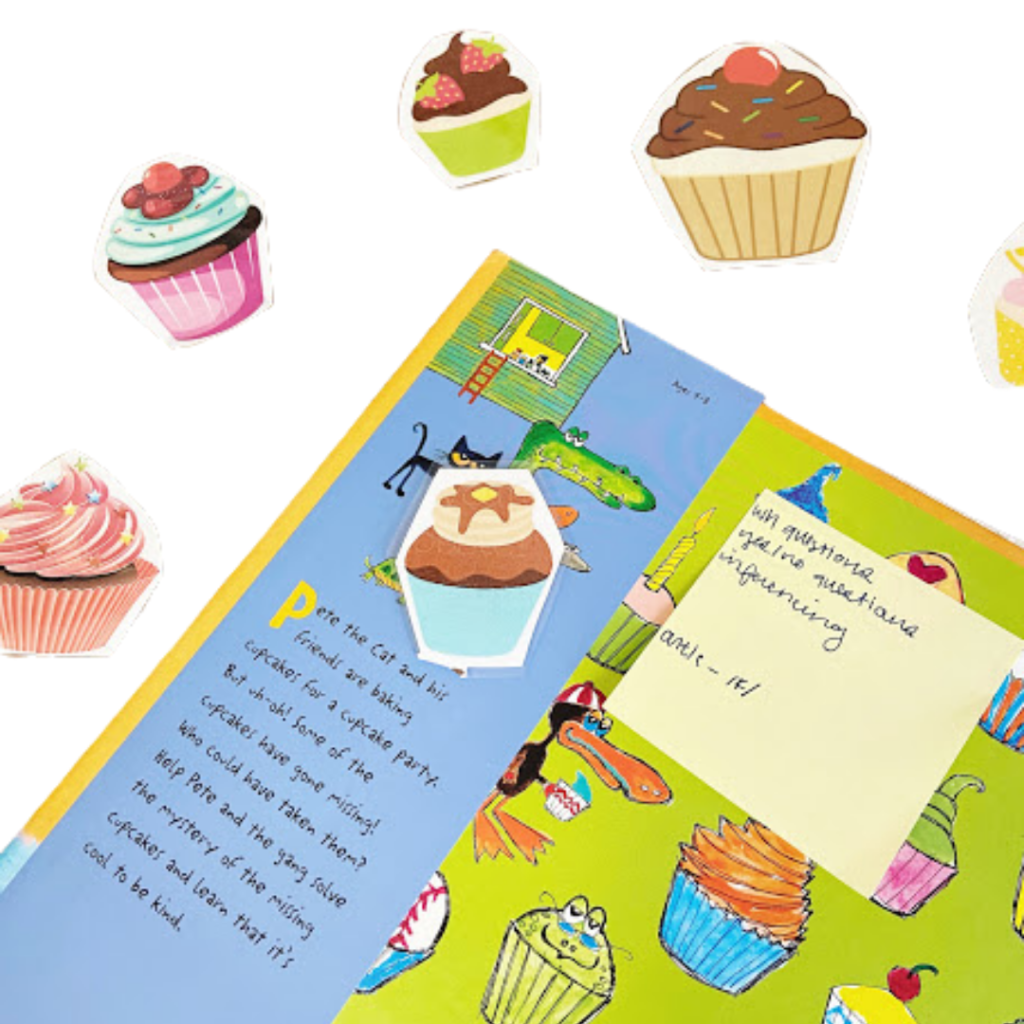
This way, you or your child could grab a book, and look! You have already made a note of speech and language goals to work on and there they are reminding you on the first page. Easy.
Want some specific examples for your child? Leave a comment with goals your child is working on in speech and I’ll recommend a good book to target them.
Happy reading!
-Jess

Sources:
Flack, Z. M., Field, A.P., & Horst, J. (2017). The effects of shared storybook reading on word learning: a meta-analysis. Developmental Psychology. https://doi.org/10.1037/dev0000512

